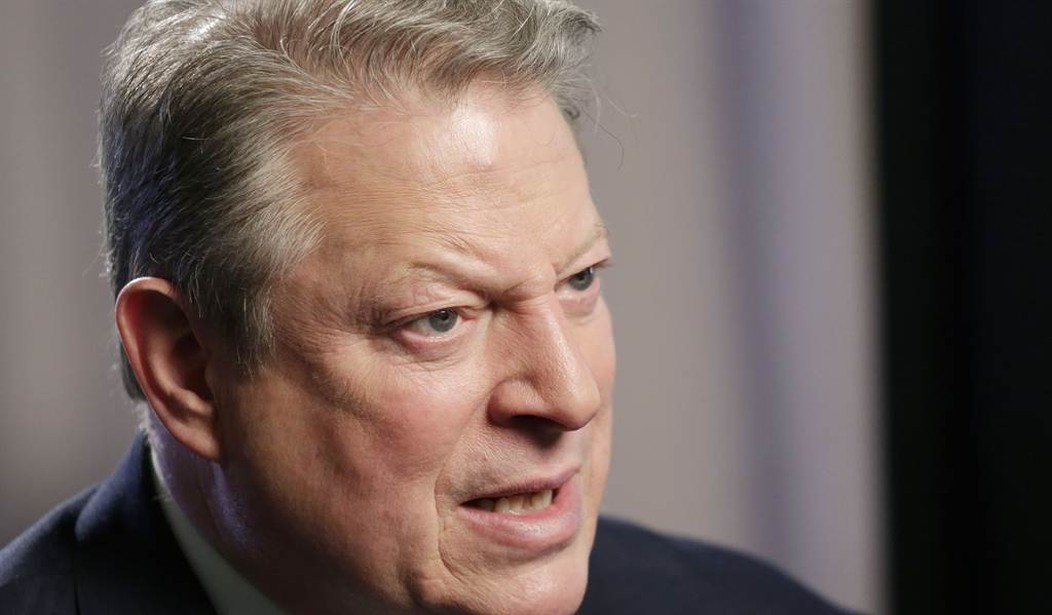Back in 2006, around the time Al Gore's global-warming documentary, "An Inconvenient Truth," was released, I started a file labeled "What Climate Consensus?" Gore was insisting that "the debate among the scientists is over," and only an ignoramus or a lackey for the fossil-fuel industry could doubt that human beings were headed for a climate catastrophe of their own making. But it didn't take much sleuthing to discover that there was plenty of debate among scientists about the causes and consequences of global warming. Many experts were skeptical about the hyperbole of alarmists like Gore, and as I came across examples, I added them to my file.
The thicker that file grew, the more shrilly intolerant the alarmists became.
Over and over the True Believers insist that their view is not just widely accepted in the scientific community, but virtually unanimous apart from some crackpots. Rajendra Pachauri, chairman of the UN's Intergovernmental Panel on Climate Change, has likened doubters to members of a Flat Earth Society. CBS news reporter Scott Pelley, asked why his "60 Minutes" broadcasts on global warming didn't acknowledge the views of skeptics, reached for an even more wounding comparison: "If I do an interview with Elie Wiesel, am I required as a journalist to find a Holocaust denier?"
It seems to make no difference that those challenging the doomsday narrative include some of the world's most distinguished scientists, or that numerous experts in climatology and related earth sciences have repeatedly gone public with their critiques. To climate ideologues, they're invisible. "Ninety-seven percent of scientists agree: #climate change is real, man-made and dangerous," President Obama tweeted in May.
Really? That's not what the American Meteorological Society learned from a recent survey of its professional members. Only a bare majority, 52 percent, said that climate change is mostly being driven by human activity. Scientists with a "liberal political orientation" were much more likely to regard global warming as human-caused and harmful, the survey's authors found — in fact, as a predictor of respondents' views on global warming, ideology outweighed greater expertise. "This would be strong evidence against the idea that expert scientists' views on politically controversial topics can be completely objective," the authors observe.
Recommended
In that light, consider the findings of a new study published in the journal Nature Climate Change. Of 117 global warming predictions generated by climate-model simulations, all but three "significantly" overestimated the actual amount of warming that occurred during the past 20 years. The models typically forecast that global surface temperature would rise by more than twice as much as it did.
Why would so many scientists have relied on models that turned out to be so wrong? The authors propose several plausible explanations — volcanic eruptions? solar irradiation? — but their bottom line is that climate science still has a long way to go: "Ultimately the causes of this inconsistency will only be understood after … waiting to see how global temperature responds over the coming decades."
That understanding won't be advanced one millimeter by ideologues who thunder that the "science is settled" and that anyone who challenges the current consensus is no better than a flat-earther or a Holocaust denier. Perhaps all those climate models wouldn't have been programmed to overpredict global warming if the pressure to conform to the alarmists' view weren't so pervasive.
In
Science isn't settled by majority vote, and invoking "consensus" to shut off debate is authoritarian and anti-scientific. There are always inconvenient truths to challenge what the majority thinks it knows. Ninety-seven percent of experts may be impressed with the emperor's new clothes. That's no reason to silence those who insist he's actually naked.

























Join the conversation as a VIP Member